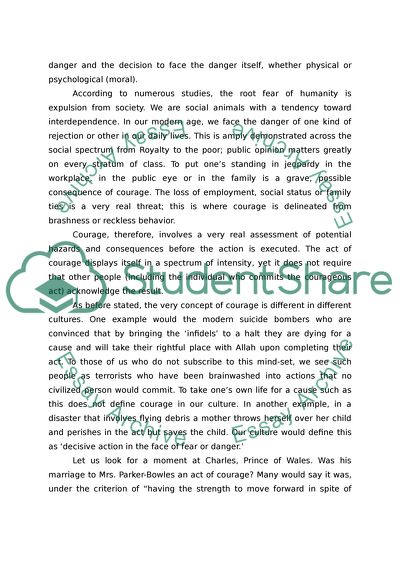Cite this document
(“Courage Essay Example | Topics and Well Written Essays - 1000 words”, n.d.)
Retrieved from https://studentshare.org/psychology/1528811-courage
Retrieved from https://studentshare.org/psychology/1528811-courage
(Courage Essay Example | Topics and Well Written Essays - 1000 Words)
https://studentshare.org/psychology/1528811-courage.
https://studentshare.org/psychology/1528811-courage.
“Courage Essay Example | Topics and Well Written Essays - 1000 Words”, n.d. https://studentshare.org/psychology/1528811-courage.


